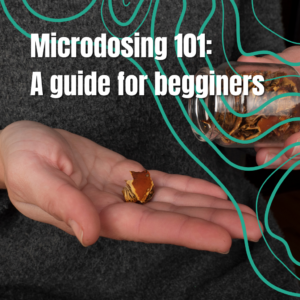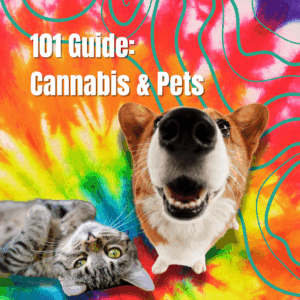

Psilocybin is a naturally occurring compound found in certain mushrooms and is known for its psychedelic effects. Recent research shows it has potential to improve mental health by easing symptoms of depression, anxiety, and addiction. Psilocybin may offer lasting benefits for mental wellbeing when used carefully and under proper guidance.

Scientists are still exploring exactly how psilocybin works in the brain, but studies suggest it helps reset neural pathways linked to mood and thought patterns. Its use in clinical settings has shown promise, though it is not without risks and should be approached with caution. Understanding both its potential and limitations is important for anyone interested in mental health treatments.
Many people are curious about how psilocybin compares to traditional therapies. Early results from surveys and clinical trials highlight improvements in mood and wellbeing that can persist long after use. This growing body of evidence points to a new direction for treating certain mental health issues using psychedelic medicine, though more research is needed to confirm its safety and effectiveness.
Key Takeways
- Psilocybin shows potential to improve symptoms of mental health conditions.
- It works by affecting brain pathways related to mood and thought.
- Careful use and further study are needed to understand benefits and risks.
Understanding Psilocybin

Psilocybin is a natural compound that affects the brain and changes perception, mood, and cognition. It is closely linked to similar substances and natural sources that contain these chemicals.
Psilocin and Psychoactive Substances
Psilocybin is a prodrug, meaning it converts into psilocin in the body. Psilocin is the active chemical that interacts with serotonin receptors in the brain. This interaction leads to altered sensory perception, changes in thought patterns, and emotional shifts.
Psychoactive substances like psilocin affect the central nervous system. Unlike many other drugs, psilocin primarily impacts the serotonin system, which plays a role in mood, memory, and perception. The effects usually start within 20 to 40 minutes and can last 4 to 6 hours.
Because psilocin influences brain activity, it has gained interest for its potential uses in mental health treatment, though more research is needed to fully understand its benefits and risks.
Magic Mushrooms
Magic mushrooms are fungi that naturally contain psilocybin and related compounds. When someone consumes these mushrooms, psilocybin is converted into psilocin in the body, leading to psychoactive effects.
These mushrooms can vary in potency depending on the species and growing conditions. Common types include Psilocybe cubensis and Psilocybe semilanceata. The dosage and effects also vary, sometimes causing visual changes, mood shifts, or deeper psychological experiences.
Magic mushrooms are often referred to as “shrooms” and have been used for centuries in cultural, spiritual, and healing contexts. Modern science is exploring their therapeutic potential in treating depression, anxiety, and other mental health conditions. For more details, see studies on psilocybin treatment for mental health.
Psilocybin and Mental Health

Psilocybin, a compound found in certain mushrooms, is being studied for its effects on mental health. It shows promise for treating specific mental illnesses by impacting brain function and emotional regulation. Research is ongoing to understand how it might work safely and effectively.
Therapeutic Potential
Psilocybin affects serotonin receptors in the brain, which influence mood and perception. This action may help reduce symptoms of depression, anxiety, and PTSD. Some patients report lasting improvements after just one or two guided doses.
It can also help people process difficult emotions and trauma with fewer side effects than some medications. However, psilocybin is not suitable for everyone, especially those with a history of psychosis or unstable mental health.
Research shows that its effects depend on the setting and professional guidance. The experience often involves altering thought patterns, which may lead to new perspectives on mental health issues.
Clinical Trials in Mental Health
Clinical trials have tested psilocybin for depression, anxiety, and other disorders. Studies often include careful preparation, monitored sessions, and follow-up therapy.
Results show significant reductions in depression and anxiety scores, sometimes lasting for months. One key trial found psilocybin helped cancer patients cope with end-of-life distress.
Trials are still small but growing in size and quality. Researchers emphasize safety and controlled environments to minimize risks. Psilocybin is not yet broadly approved but holds promise as part of new mental health treatments.
For more detail on psilocybin’s clinical use, see this study on its clinical potential as a treatment for mental health conditions.
Psilocybin for Treating Depression
Psilocybin has been studied as a treatment for depression, showing promising effects in clinical settings. Research focuses on how a single or a few doses can change symptoms and improve mental health over time.
Clinical Efficacy
Clinical trials have found that psilocybin can significantly reduce depression symptoms after treatment. In randomized studies, patients with major depressive disorder experienced lower depression scores weeks after a single dose combined with psychological support.
Participants typically receive treatment in controlled environments with trained facilitators. Improvements often start within a week and may last for several months.
A notable point is that psilocybin treatment requires careful screening and mental health supervision, ensuring safety and effectiveness. These trials also compare different doses and protocols to identify the best way to use psilocybin for depression relief.
For detailed clinical results, studies like this one provide in-depth information on psilocybin’s effects in controlled trials. Effects of psilocybin-assisted therapy on major depressive disorder.
Psilocybin and Anxiety Disorders
Psilocybin shows promise as a treatment for anxiety disorders, including generalized anxiety and PTSD. It works differently from standard medications and has been studied in clinical trials with patients facing anxiety linked to serious illnesses and other causes.
Mechanisms of Action
Psilocybin affects the brain by interacting with serotonin receptors, particularly the 5-HT2A receptor. This interaction helps reset brain activity patterns that contribute to anxiety. It reduces activity in the default mode network, a brain region linked to self-focused thoughts that can worsen anxiety.
This effect can lead to more flexible thinking and reduced fear responses. Psilocybin may also promote new neural connections, aiding long-term improvements in mood and anxiety symptoms. These biological changes help explain why patients often report feeling less anxious after treatment.
Case Studies and Research
Several clinical trials have tested psilocybin’s effects on anxiety. One study treated 12 patients with anxiety tied to life-threatening cancer and found significant symptom improvements after psilocybin sessions. Many patients reported lasting relief that traditional drugs did not provide.
Other research includes reviews and meta-analyses that support psilocybin’s safety and effectiveness in reducing anxiety symptoms. In these trials, therapy combined with psilocybin helped patients process difficult emotions and lowered anxiety related to trauma or chronic illness. For detailed clinical trial information, visit the study on psilocybin for anxiety in life-threatening diseases.
Addiction and Substance Use Disorders
Psilocybin shows promise for helping people with addiction and substance use disorders. It may reduce cravings and support long-term recovery by affecting brain chemistry and mental states. Research focuses on how it can be safely used in therapy.
Therapeutic Approaches
Psilocybin is used in controlled therapy sessions to treat addiction. The drug is given along with psychological support to help patients change their relationship with substances like alcohol and opioids.
Studies show psilocybin may reduce withdrawal symptoms and decrease dependence by improving mood and outlook. Therapy often involves preparation, guided experiences during the session, and follow-up counseling.
Key points:
- Psilocybin targets brain chemicals linked to addiction.
- It is combined with therapy to maximize benefits.
- Research indicates it may help reduce use of alcohol, opioids, and other drugs.
For more detailed research on psilocybin’s potential in this area, the review on its efficacy and safety for substance use disorders offers useful insights.

